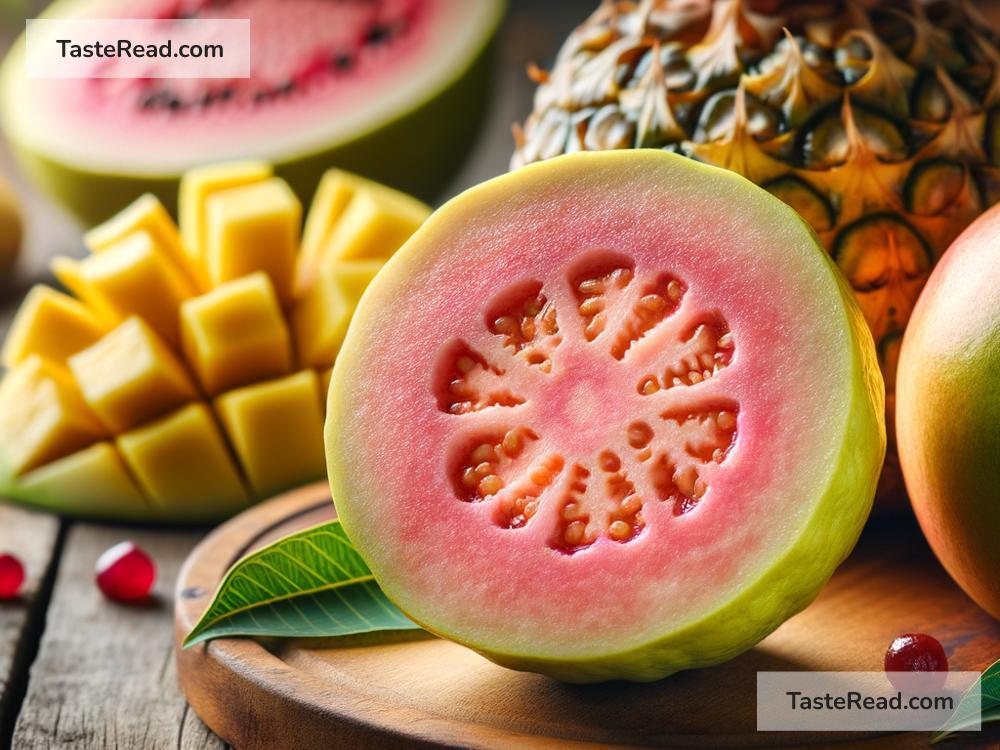Why Fruits Like Guava Have a Musky Aroma
Fruits are nature’s candy, offering a wide variety of flavors, textures, and scents. Among the many fruits, guava has a unique aroma that stands out. If you’ve ever sniffed a ripe guava, you may have noticed its musky, earthy fragrance. But have you ever wondered why guava smells this way? What makes it different from the sweet citrusy smell of oranges or the tropical perfume of pineapples? Let’s explore the science and magic behind guava’s musky aroma in simple terms.
What Is Aroma in Fruits?
Before diving into guava specifically, let’s talk about what gives fruits their distinctive smells. The aroma of fruits comes from chemical compounds, which are released into the air as the fruit ripens. These compounds interact with our sense of smell, creating the unique fragrance we associate with each type of fruit.
Think of it like cooking spices; the different ingredients you add to a dish combine to create a special smell. Similarly, fruits have their own “recipe” of aroma compounds that produce their signature scent.
The Musky Scent of Guava
Guava is especially famous for its musky, earthy smell. While it does have a hint of sweetness, the fragrance is stronger and more complex than what you’d find in many other fruits. The reason behind this lies in the chemical makeup of guava.
When guavas ripen, they produce several volatile compounds—natural chemicals that evaporate easily and float through the air. Some of the key compounds responsible for guava’s musky aroma include:
-
Terpenes – These are organic compounds commonly found in plants. In guava, terpenes contribute to its earthy, herbal fragrance.
-
Esters – These are another type of compound that often provide fruity and sweet notes. In guava, they work in harmony with other chemicals to create its unique smell.
-
Alcohols – Certain alcohol-based compounds, like ethanol and benzyl alcohol, can add depth and richness to the aroma.
-
Sulfur Compounds – While not as common in fruits, traces of sulfur compounds in guava can contribute to a musky, almost savory element in the scent.
Together, these compounds create guava’s unforgettable aroma, which is often described as “musky,” “tropical,” or “warm.”
Evolution’s Role in Fruit Aromas
Now that we know what causes guava’s musky smell, you might wonder: Why does it smell the way it does? Is there a reason behind it? The answer lies in evolution.
Fruits produce aromas to attract animals, such as birds, insects, and sometimes humans. This is nature’s way of ensuring that the seeds inside the fruit are spread far and wide after being eaten. For guava, a musky aroma may appeal to certain creatures in the wild, signaling that the fruit is ripe and ready to eat.
Additionally, guava’s aroma is strong and distinctive, making it easier for animals to locate the fruit even from a distance. This is crucial in the competitive world of plants and fruits, where every species is trying hard to grab attention and ensure survival.
Why Do Some People Love—or Dislike—Guava’s Aroma?
It’s interesting to note that not everyone enjoys the musky smell of guava. While some people find it irresistible and exotic, others might think it is too strong or unusual. Why does this happen?
It all comes down to individual sense of smell and taste preferences. Each person has unique olfactory receptors (the cells in our noses that sense smells). These receptors vary from person to person, which means that your brain might interpret the scent of guava differently than someone else’s. For example, while you might associate guava’s musky smell with tropical freshness, another person might find it overpowering or even unpleasant.
Cultural background can play a role too. In tropical regions where guava is commonly grown, people often embrace its aroma and flavor because it reminds them of home. But for someone unfamiliar with guava, the musky scent might take some getting used to.
More Than Just a Pleasant Smell
Interestingly, guava’s musky aroma does more than just attract animals or people. It also has health benefits! In traditional medicine, guava leaves and fruit have been used to treat conditions like coughs, diarrhea, and skin issues. And modern research suggests that some of the aroma compounds in guava may contain antioxidants and antimicrobial properties. This means they can help fight harmful bacteria and protect cells from damage.
Moreover, guava has been made into essential oils and perfumes, thanks to its unique scent. It’s a reminder that sometimes, the musky smell that some people don’t appreciate can have hidden value.
Final Thoughts
Guava may not be the first fruit that comes to mind when you think about pleasant smells, but its musky aroma is what makes it special. The combination of distinct chemical compounds gives it a fragrance that’s earthy, tropical, and warm. This unique scent is the result of evolution, helping guava attract animals to spread its seeds.
While some people love guava’s fragrance and flavor, others may find it unusual or overpowering. Whether you enjoy guava’s musky smell or not, there’s no denying that it’s one of the most remarkable fruits in the world. So the next time you encounter a guava, take a moment to appreciate its aroma—a gift of science and nature combined!


